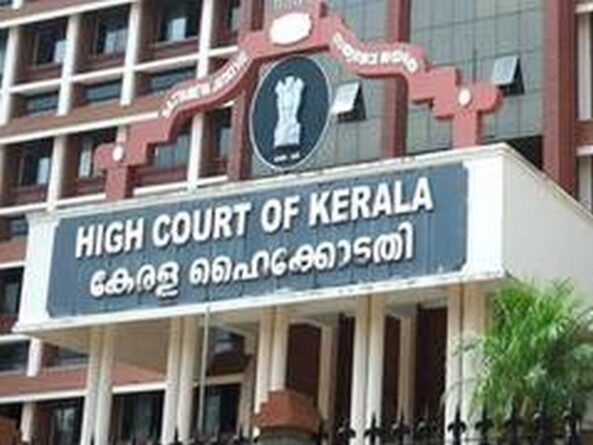Kerala High Court Dismisses Plea Seeking Removal of Horror Film Churuli from Sony LIV
(Judicial Quest News Network)
The Kerala High Court today dismissed the plea seeking to remove the Kerala Film “Churuli” from Sony LIV,
The plea had been moved by a Lawyer, Peggy Fen, contending that there was an overdose of foul language “in the film therefore it should be removed from the OTT platform as expeditiously as possible.
Justice PV Kunhikrishnan while pronouncing the judgement that said that lawyers should be an example for the rest of the citizens on how to crticise judgements if such criticism is warranted. The lawyers should show the path to the society about the manner in which a judgment of a court is to be dealt with and how a judgment is to be criticized if it deserves such criticism. They can read the judgment and criticize the judgment if theywant and of course not the judges who wrote the judgment. If the lawyers take a stand that they will make comments about a judgment of a court of law only after reading the judgment, that will go a long way because society will accept the stand of lawyers because they are respectable people in the society. If the lawyers started to comment about a judgment without reading a
judgment, nobody can blame the poor citizens who make comments about judgment and judges on social media.
The Judge have also observed that I am constrained to make certain observations. Social media is now popular among the citizens. Anybody can make any comments on social media because freedom of speech and expression is a fundamental right. But people are making comments on social media without properly understanding the facts. I am sure that most of the people who are making comments against this film namely “Churuli” have not seen the movie in full. Probably they may be relying on certain video clips received on WhatsApp, Facebook, Twitter, etc. to make comments. There is indeed freedom of
speech and expression to every citizen as per Article 19 (1)(a) of the Constitution of India. But the above types of critics will be doing an injustice to a filmmaker by making comment about a film and make it an unpopular one without watching his movie in full. I can understand a criticism about a movie after watching the movie in full. But, without watching the movie, making comments alleging that it is a bad film, will hurt the filmmakers and artists. They are also human beings. The court made it clear that its comments are not towards a small section of lawyers, and that all members of the Bar must aithfully fulfil their role as mouth piece of the judiciary.
At least hereafter, the lawyers should take an oath that they will
make comments in print media, visual media, and social media
about a judgment of a court of law only after reading the
judgment. As I said earlier, the Bench and bar are two sides of a
coin. The lawyers should be the mouthpiece of the judiciary.
They should protect the interest of the judiciary. The judges may
come and go. But Judiciary should stand. The lawyers are part
and parcel of the judiciary. Anyway, I leave it to the conscience
of all lawyers.
The court has also highlighted the behaviour of denizens in its judgement. Citizens criticizing a movie or any work of art have a duty to do their due diligence and watch the same before exercising their right to freedom of speech and expression under Article 19(1)(a) of the Constitution.
The Mystery-horror film was released on Sony LIV, a public OTT platform, on November 19th 2021.Directed and co-produced by Lijo Jose Pellissery and written by S.Hareesh, the plot is based on a short story from the book Kaligaminarile by Kuttavalikal,authored by Vinoy Thomas.
Earlier the Court had also sou moto impleaded the State Police Chief to file a Statement report if there was any statutory violation in exhibiting the movie. The State Police Chief had submitted its report mentioning that it did not find anything against the movie.
Soon after its release the social media was flooded with trolls including references to the profanities of women and children equally, leaving the viewers irritated and distressed.
A cinema is a creation of a film maker. Artistic freedom generally means a freedom to imagine, create and distribute cultural expressions. Article 19(1)(a) of the Constitution of India envisages a
fundamental right to freedom of speech and expression to all citizens, but of course with an exception mentioned in Article 19(2) of the
Constitution. Article 19(2) of the Constitution of India



